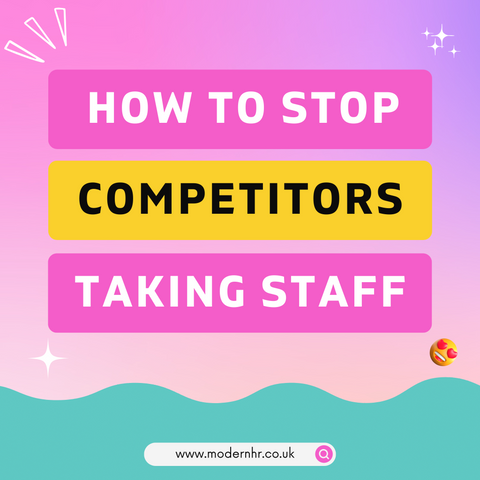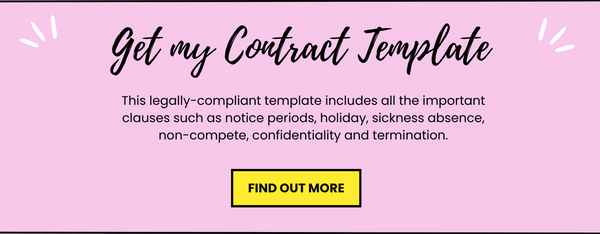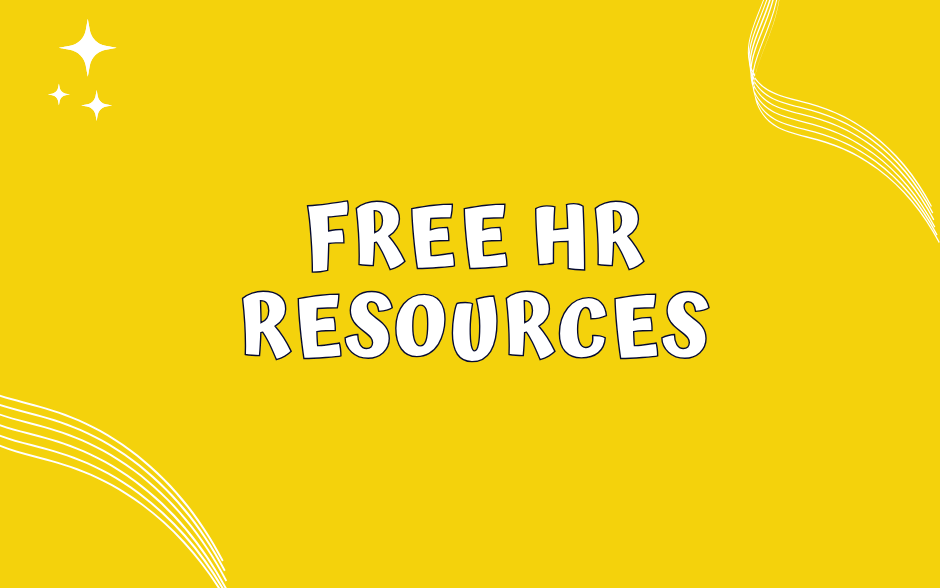How to stop my competitors poaching my staff?

If you're worrying that your competitors might lure your employees away, you are not alone. It's actually surprising how cheeky and ruthless people can be when it comes to a) copying product ideas and b) stealing staff.
And when the worst does happen, it can cause genuine upset and upheaval. After all, replacing staff is time consuming and costly. Then, there’s the added anxiety of what they’ll share about YOUR business info with their new employer.
It can be an emotional time too for any business owner 😱 Especially if your employee sets themselves up in direct competition with you. And whilst you can’t control everything, you can limit the damage all this can cause. Read on to find out how.👇
WHY COMPANIES POACH STAFF
Poaching is a term that’s used when a business targets one or more individuals from another company, and encourages them to join their organisation.
There’s a whole heap of reasons why a competitor may tap up your talent. It tends to be frowned upon. But, it still happens across the board. No matter what sector you’re in, or how big your business is.
Businesses might poach your people to:
💪 Strengthen their own company, by potentially weakening yours.
🔎 Get an insight into what you're planning and how you work.
⏰ Save heaps of time and money on hiring and training.
Suppliers and clients may also try to coax your employees away. This is often because your staff have done such a great job representing your business, that they become low hanging fruit. 🍊 🍋
MAKE YOUR PLACE A STICKY ONE
If you value your employees, you’ll want them to stick around. Whether they do or not, is actually partly down to YOU.
How a person feels about their job is often shaped by the way they’re managed, and the type of environment they work in. These are two things that you can influence.
As the saying goes, prevention is better than cure, and it’s true! Making sure your people are fulfilled and rewarded in their roles, will make them think twice about moving on to a rival firm. 👌
One study said that employees tend to leave their jobs because they want to better develop their careers. Are you developing and investing in your people?
It’s also super-important to create an environment where your employees feel comfortable enough to tell you when they get approached by your competitors. This gives you the perfect opportunity to suss out what’s going on, and then consider if you want to try and stop them from leaving.
At the end of the day though, if an employee’s gonna go, they’re gonna go.
But, it’s good to know:
✔ You’ve done all you can to make their time working for you, a good one.
✔ You’ve tried your best to convince them to stay (if that’s what you want).
That’s all you can do as a responsible employer, right? 🙂

WATCH OUT FOR THE SIGNS 👀
Unless they tell you, it’s hard to know if your employee is thinking about leaving. But, staff retention is important and there are some signs to watch out for.
Things like:
🗓 They seem to be taking more time off.
🤔 Their behaviour has changed slightly.
📲 They’re more active on professional networking sites.
🗣 They’re asking questions related to their employment or contract.
🙊 There are rumours flying about in your team.
I’ve dedicated an entire blog to help you spot the signs that your star employee is leaving. And also, what to do about it. Why not take a peek?
CONTRACTS, CLAUSES, AND COVENANTS 📑
Whilst the type of business and company culture may determine the level of risk, your employment contracts should contain clauses or restrictive covenants to protect the confidential information, trade secrets, and business connections that your employees may have access to, during their time with you.
Here are the main ones to chew over 👇
🚫 Non-compete clauses
To help stop your ex-employee from setting up in direct competition with you, or joining a competitor as an employee.
🚫 Non-solicitation clauses
To help stop your ex-employee from trying to win business from your customers – once they’re no longer employed by you.
🚫 Non-dealing clauses
To help stop your ex-employee from working for one of your clients, even if they were approached by the client themselves!
🚫 Non-poaching clauses
To help stop your ex-employee from taking your staff with them – to set up a new company together – or join another business together.
🤔 Some important things to ponder over…
You can specify how long your employees need to stick to these clauses above. But, you can’t control your former employees forever! Six after they’ve left, is usually considered reasonable. If they’re quite senior, or in a specific role, you could get away with specifying a longer period of time.
In a court of law, what’s ‘reasonable’ totally depends on the specifics of your business, your employee’s role, and your client relationships.
Oh, and you can also set some geographical limits too. 🌍 Mega useful if you run a business that relies on face-to-face, local custom.
If someone does leave you, consider doing exit interviews to help understand why your staff are leaving to highlight patterns or issues.
Make sure you have clear notice periods in place too.
GET A CONTRACT WITH A CLAUSE!
If you go to my online shop, you’ll find my employee contract template that contains all the must-have non-compete clauses to protect your business from the poachers.
Plus, it also covers all the other clauses like job title, pay, sick pay, holidays etc.
You can totally personalise it to reflect your brand. And, use it again as you employ more staff. 👌







